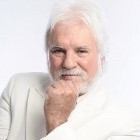The Keys to Wellness
Exploring the origins of the phrase ‘enter through the narrow gate’
The phrase “enter through the narrow gate” has its origins in the Bible specifically in the book of Matthew in the New Testament. In Matthew 7:13-14, Jesus is recorded as saying, “Enter through the narrow gate. For wide is the gate and broad is the road that leads to destruction, and many enter through it. But small is the gate and narrow the road that leads to life, and only a few find it.”
This passage is often interpreted as a metaphor for the difficult path of righteousness and salvation compared to the easier path of sin and destruction. The narrow gate symbolizes the challenges and sacrifices that come with living a righteous life while the wide gate represents the temptations and easy choices that lead to destruction.
This phrase has been widely used in Christian teachings and sermons to emphasize the importance of making the right choices and following the path of righteousness even when it may be difficult. It has also been referenced in various literary works and popular culture as a symbol of making difficult choices and staying true to one’s beliefs.
Overall, the phrase “enter through the narrow gate” holds significant religious and moral meaning and continues to be a powerful symbol of the Christian faith. Is this teaching relevant to the pursuit of health and wellness in the modern world? We will see that adherence to this ancient teaching is indeed one of the keys to wellness!
Various Religious Interpretations
This verse has been the subject of much interpretation and debate within the Christian community and has also been examined in various ways by scholars of other religious traditions. You will see that, despite some differences in interpretation, at it’s core the notion of the narrow gate is one that is universal. In this blog post, we will explore the different religious interpretations of the concept of entering through the narrow gate. I will then go on to examine what, if any, meaning this teaching has for us in the modern world.
The Christian Tradition

In the Christian tradition, the concept of entering through the narrow gate is often understood as a call to follow the teachings of Jesus and live a life of faith and obedience to God. The narrow gate is seen as a symbol of the difficult path of discipleship and the “broad road” represents the easy and tempting path of worldly pleasures and sin. This interpretation emphasizes the importance of making choices that align with the teachings of Jesus that lead to a life of righteousness and salvation.
The Islamic Tradition

In the Islamic tradition the concept of entering through the narrow gate is also present in the teachings of the Prophet Muhammad. In Islam the narrow gate is often understood as a metaphor for the straight path of righteousness and obedience to Allah while the broad road represents the path of sin and disobedience. Muslims are called to follow the teachings of the Quran and the example of the Prophet Muhammad in order to enter through the narrow gate and attain salvation in the afterlife.
The Jewish Tradition

In the Jewish tradition, the concept of entering through the narrow gate is often associated with the idea of repentance and returning to God. In Judaism, the narrow gate is seen as a symbol of the difficult process of teshuvah, or repentance, while the broad road represents a life of sin and spiritual neglect. Jews are called to seek forgiveness for their sins and strive to live a life of righteousness in order to enter through the narrow gate and be reconciled with God.
The Buddhist Tradition

In the Buddhist tradition, the concept of entering through the narrow gate is often understood in terms of the path to enlightenment and liberation from suffering. In Buddhism the narrow gate is seen as a symbol of the difficult and disciplined path of meditation and moral conduct while the broad road represents the path of attachment and craving that leads to suffering. Buddhists are called to follow the teachings of the Buddha and practice the Eightfold Path in order to enter through the narrow gate and attain enlightenment.
The Hindu Tradition

In the Hindu tradition the concept of entering through the narrow gate is often associated with the idea of spiritual purification and liberation from the cycle of birth and death. In Hinduism, the narrow gate is seen as a symbol of the difficult process of self-realization and detachment from worldly desires while the broad road represents the path of ignorance and attachment. Hindus are called to follow the teachings of the Vedas and the example of the great sages in order to enter through the narrow gate and attain moksha or liberation from the cycle of samsara.
In conclusion, the concept of entering through the narrow gate is a truly universal theme that is present in many religious traditions. While the specific interpretations may vary the underlying message is one of spiritual discipline, moral conduct, adherence to a set of principles and obedience to the divine.
Whether it is understood as the path of discipleship in Christianity, the path of righteousness in Islam, the path of repentance in Judaism, the path of enlightenment in Buddhism or the path of liberation in Hinduism the concept of entering through the narrow gate serves as a reminder of the importance of making choices that lead to spiritual growth and ultimate salvation.
The Broad Gate: A Contrast to Mindfulness
The ‘broad gate’ and its implications

The concept of the ‘broad gate’ is often associated with the idea of taking the easy path in life, one that is wide and accommodating but ultimately leads to destruction. This concept is often found in religious and philosophical teachings where it is contrasted with the idea of mindfulness.
Mindfulness, on the other hand, is the practice of being fully present and aware in the moment without judgment. It involves paying attention to one’s thoughts, feelings and surroundings and is often associated with meditation and other contemplative practices.
While the ‘broad gate’ represents a lack of discernment and an avoidance of difficult choices, mindfulness encourages individuals to actively engage with their experiences and make conscious decisions.
By contrast, the ‘broad gate’ can lead to a lack of fulfillment and purpose while mindfulness can lead to greater self-awareness and a deeper sense of connection with oneself and the world around them.
Ultimately, the ‘broad gate’ and mindfulness represent two different approaches to life with the former emphasizing ease and comfort and the latter emphasizing awareness and intentionality.
The culture of convenience and its pitfalls
The culture of convenience has become increasingly prevalent in modern society with the proliferation of fast food, online shopping and on-demand services. While the convenience of these amenities can make our lives easier, there are also significant pitfalls associated with this cultural shift. One of the most pressing concerns is the impact on our health.
The availability of fast food and processed snacks has contributed to rising rates of obesity and chronic diseases. Additionally, the convenience of online shopping has led to a decrease in physical activity as people are less inclined to leave their homes to make purchases.
Another downside of the culture of convenience is its effect on the environment. The production and transportation of disposable, single-use items contribute to pollution and waste. Furthermore, the reliance on convenience can lead to a lack of resilience and adaptability in the face of challenges. When individuals become accustomed to having their every need met instantly, they may struggle to cope with adversity and inconvenience.
Overall, while the culture of convenience offers many benefits it is crucial to consider and address its potential pitfalls in order to create a more sustainable self and a balanced society.
The value of challenges and discipline in personal growth

Challenges and discipline play a crucial role in personal growth and development. They provide individuals with opportunities to push their limits, learn from their experiences and ultimately become better versions of themselves.
Challenges force individuals to step out of their comfort zones and confront new situations. Whether it’s taking on a new job, learning a new skill or overcoming a personal obstacle, challenges present opportunities for growth. By facing and overcoming these challenges individuals develop resilience, problem-solving skills and a greater sense of self-confidence. They learn to adapt to change, think creatively, and persevere in the face of adversity.
Discipline is equally important in personal growth. It involves setting goals, making a plan and sticking to it. Discipline helps individuals stay focused and motivated even when faced with obstacles or setbacks. It requires self-control, determination and the ability to prioritize long-term goals over short-term gratification. Through discipline, individuals develop habits that support their personal growth such as regular exercise, healthy eating and consistent work habits.
Together, challenges and discipline create a powerful combination for personal growth. Challenges provide the opportunities for growth while discipline provides the structure and commitment needed to achieve that growth. When individuals embrace challenges with discipline they can achieve remarkable personal growth and development.
Furthermore, challenges and discipline also foster a growth mindset. Instead of viewing setbacks as failures individuals with a growth mindset see them as opportunities to learn and improve. They embrace challenges as chances to stretch their abilities and develop new skills. This positive outlook on challenges and discipline allows individuals to continuously strive for improvement and personal growth.
Challenges and discipline are essential for personal growth. They provide individuals with the opportunities to learn, adapt and develop new skills. By embracing challenges with discipline individuals can achieve remarkable personal growth and foster a growth mindset. Therefore, it is important for individuals to seek out challenges, embrace a disciplined mindset and use these tools to propel their personal growth and development.
Application of the Narrow Gate in Personal Development
How the ‘narrow gate’ philosophy applies to goal setting and achievement

The ‘narrow gate’ philosophy, often associated with the teachings of Jesus in the Bible, emphasizes the idea of taking a difficult and disciplined path in order to achieve a worthwhile goal. When it comes to goal setting and achievement this philosophy can be applied in a number of ways.
First, it suggests that in order to achieve something truly meaningful one must be willing to make sacrifices and put in the necessary hard work and effort. This means being selective and focused on the goals that truly matter rather than spreading oneself too thin and pursuing numerous objectives at once.
Additionally, the ‘narrow gate’ philosophy also highlights the importance of determination, perseverance and resilience in the face of obstacles and setbacks. It encourages individuals to stay committed to their goals even when the path becomes challenging or uncertain. This can be particularly relevant in the context of long-term goals where the journey towards achievement may be arduous and require sustained effort over a prolonged period of time.
Ultimately, the ‘narrow gate’ philosophy serves as a reminder that the most meaningful and fulfilling achievements often require a deliberate and disciplined approach as well as a willingness to overcome adversity in pursuit of one’s aspirations.
A Deliberate and Disciplined Mindset | Faithfulness
Faithfulness is a concept that is often associated with loyalty, trustworthiness and reliability. It is the quality of being faithful and true to a person, belief or commitment. In relationships, faithfulness is often equated with being loyal and committed to one’s partner and it involves being honest, dependable and devoted.
In religious contexts, faithfulness is related to one’s loyalty and devotion to a higher power or belief system. It is about staying true to one’s religious beliefs and practices and remaining steadfast in the face of challenges and temptations.
Faithfulness is also important in professional and personal contexts as it involves being reliable and trustworthy in fulfilling one’s responsibilities and keeping one’s promises.
Overall, faithfulness is about demonstrating unwavering commitment, honesty and reliability in all aspects of life. It is a virtue that is highly valued in various cultures and societies and it is seen as a key component of building and maintaining strong and healthy relationships whether they be personal, professional or spiritual.
Tips for staying on the correct path amidst distractions

In today’s fast-paced and connected world it can be challenging to stay on the correct path amidst distractions. Whether it’s the allure of social media, the demands of work or the pressures of everyday life, it’s easy to veer off course and lose sight of our goals. However, there are several tips that can help us stay focused and on track.
First, it’s important to set clear and achievable goals. By having a clear vision of what we want to accomplish we can better prioritize our tasks and avoid getting sidetracked by irrelevant distractions. In addition, it’s crucial to create a routine and stick to it. By establishing a daily schedule and following it consistently, we can build momentum and develop a sense of discipline that will help us resist the pull of distractions.
Furthermore, it’s essential to practice mindfulness and be present in the moment. By staying mindful of our actions and surroundings we can better recognize when we are being pulled off course and take steps to refocus our attention.
Finally, it’s important to surround ourselves with supportive and like-minded individuals who can help keep us accountable and motivated.
By following these tips, we can better navigate the distractions that threaten to derail us and stay on the correct path towards our goals.
Secular Interpretations of Entering Through the Narrow Gate
Exploring non-religious interpretations of the metaphor
The metaphor “enter through the narrow gate” is often associated with religious teachings, particularly in the context of Christianity. However, there are also non-religious interpretations of this metaphor that can offer valuable insights.
One interpretation is that the narrow gate represents a path of self-discovery and personal growth. In this sense, entering through the narrow gate could be seen as a metaphor for the challenging and often uncomfortable process of introspection and self-improvement. It could also symbolize the idea of taking the road less traveled and the courage and determination that is required to pursue one’s own unique path in life.
Another non-religious interpretation of this metaphor is that it represents the idea of embracing simplicity and minimalism. Entering through the narrow gate could be seen as a metaphor for letting go of material possessions and external distractions in order to focus on what truly matters in life. This interpretation emphasizes the value of living with intention and mindfulness and the importance of prioritizing meaningful experiences over material wealth.
Overall, exploring non-religious interpretations of the metaphor “enter through the narrow gate” can provide a fresh perspective and encourage deeper reflection on the universal themes of personal growth, authenticity and purpose.
The importance of critical thinking and making conscious choices

Critical thinking and making conscious choices are essential components of navigating the complexities of life. In a world where there is an abundance of information, misinformation and opinions it is crucial to develop the ability to critically analyze and evaluate the information we encounter. This skill enables individuals to make well-informed decisions and avoid being swayed by biased or misleading information.
By embracing critical thinking individuals can also challenge their own beliefs and assumptions leading to personal growth and a deeper understanding of the world around them.
Additionally, making conscious choices involves being mindful of the impact of our actions on ourselves, others and the environment. It requires us to consider the ethical implications of our decisions and strive to make choices that align with our values and beliefs.
In a secular context, critical thinking and conscious decision-making serve as a guide to navigating the complexities of life and contribute to personal and societal well-being. Is it not, therefore, imperative to prioritize these skills and cultivate them in ourselves and others?
Real-life examples of ‘narrow gate’ decision-making in a secular context

In a secular context, ‘narrow gate’ decisions refer to choices that are difficult and require sacrifice or trade-offs. One real-life example of this type of decision is the choice to pursue a career in a competitive industry such as acting or professional sports. Individuals in these fields often face intense competition and limited opportunities for success requiring them to make sacrifices in terms of time, energy and financial stability.
Another example is the decision to live a minimalist lifestyle in order to reduce environmental impact and promote sustainability. This choice often involves giving up material possessions and conveniences in favor of a simpler, more sustainable, way of living.
Overall, ‘narrow gate’ decision-making involves making difficult choices that require individuals to prioritize their values and goals over immediate comfort or convenience.
Insights from Experts: The Narrow Gate in Modern Times
Views from theologians, philosophers and life coaches
The concept of the “narrow gate” has been a subject of discussion and interpretation among theologians, philosophers and metaphysicians for centuries. In Christian theology, the “narrow gate” is often associated with the teachings of Jesus Christ, specifically in the Gospel of Matthew where he speaks of entering through the narrow gate that leads to life.
Theologians have debated the meaning of this passage, with some interpreting it as a call to a life of discipline and self-denial while others see it as a metaphor for the challenges of living a righteous life in a world filled with temptation and sin.
Philosophers have also weighed in on the concept with some drawing parallels between the “narrow gate” and the idea of moral and ethical decision-making.
Life coaches often use the concept of the “narrow gate” as a metaphor for personal growth and the pursuit of one’s true purpose. They may encourage individuals to embrace challenges and make difficult choices in order to achieve their goals and live a fulfilling life.
Overall, the idea of the “narrow gate” is a rich and complex concept that has inspired diverse perspectives and interpretations from various intellectual and spiritual traditions.
The relevance of the ‘narrow gate’ in today’s fast-paced world

In today’s fast-paced world, the concept of the “narrow gate” holds significant relevance serving as a poignant metaphor for the challenges and choices individuals face in their personal and professional lives.
The idea of the narrow gate, often associated with religious and philosophical teachings, speaks to the notion of making difficult decisions, embracing discipline and prioritizing what truly matters.
In a world inundated with endless options, distractions and competing demands the concept of the narrow gate encourages individuals to focus on what is essential and meaningful rather than succumbing to the pressures of conformity or instant gratification. It underscores the importance of deliberate, thoughtful choices and to the willingness to forgo the allure of the wide and easy path in favor of a more purposeful and fulfilling journey.
In the context of career and personal development the narrow gate challenges individuals to pursue excellence, mastery and authenticity, rather than succumbing to the allure of shortcuts or superficial success. Moreover, it prompts a reevaluation of societal norms and values, urging individuals to question the prevailing standards of achievement and happiness.
In a world characterized by relentless busyness and the pursuit of instant gratification the notion of the narrow gate serves as a compelling reminder of the significance of depth, introspection and deliberate action. It encourages individuals to seek depth over superficiality, meaning over materialism and connection over mere transaction.
Embracing the principles embodied by the narrow gate can lead to a more purposeful, fulfilling existence, fostering resilience, integrity and a sense of inner peace amidst the chaos of modern life.
Embracing the Journey Through the Narrow Gate
A reflection on life paths and choices

Life is full of choices, both big and small, that ultimately shape the paths we take. It’s important for individuals to take the time to reflect on the decisions they’ve made and the direction in which their life is headed.
Reflecting on one’s life path can provide valuable insight into what has worked well and what could be improved upon. It can also help individuals to recognize patterns and habits that may be holding them back from reaching their full potential.
By taking the time to reflect, individuals can gain a better understanding of themselves and the impact of their choices on their overall well-being. This can lead to a greater sense of self-awareness and empowerment, enabling individuals to make more informed and intentional decisions moving forward.
Whether it’s through journaling, meditation or simply setting aside time for quiet contemplation, carving out space for reflection can be a powerful tool for personal growth and self-discovery.
So, why not take a moment to pause and consider the path you’re on. Are you happy with the direction in which your life is headed? What changes, if any, would you like to make? By reflecting on life paths and choices we can live more purposefully and authentically.
Strategies for maintaining resilience and commitment to personal principles

Maintaining resilience, determination and commitment to personal principles and the path through the narrow gate can be challenging especially in the face of adversity and difficult circumstances. However, there are several strategies that can help individuals stay true to their values and beliefs:
- One key strategy is to cultivate a strong support network of friends, family, and mentors who can provide encouragement and guidance during tough times. Having a strong support system can help individuals stay resilient and committed to their principles;
- Additionally, practicing self-care and mindfulness can also be beneficial in maintaining resilience and commitment. Engaging in activities such as meditation, exercise, and hobbies can help individuals stay grounded and focused on their personal principles. Setting clear goals and priorities can also help individuals stay committed to their principles, as it provides a sense of direction and purpose;
- Finally, seeking out opportunities for personal growth and learning can also help individuals maintain resilience, determination and commitment. By continuously challenging themselves and expanding their knowledge and skills individuals can strengthen their resolve and stay true to their principles. Overall, by implementing these strategies, individuals can maintain resilience and commitment to their personal principles even in the face of challenges.
What Choice to Make?
Choices have consequences. This is a fundamental truth that applies to every aspect of our lives. Whether it be in our personal relationships, our careers or our health, the decisions we make have a direct impact on the outcomes we experience. It’s important to recognize that every choice we make, no matter how small, has the potential to shape our future.
For example, deciding to eat a healthy meal instead of indulging in junk food can lead to improved physical well-being while choosing to procrastinate on important tasks can result in missed opportunities and increased stress.
In the same vein, the choices we make in our relationships can have lasting effects on our emotional well-being and the well-being of those around us. It’s crucial to approach decision-making with care and consideration, understanding that the consequences of our choices can have far-reaching implications. By being mindful of the potential outcomes of our actions, we can strive to make choices that align with our values and lead to positive results.
Values are the guiding principles that shape our behavior and decision-making. They provide a framework for understanding what is important to us and what we believe in. Having strong values is important because they help us to make ethical choices, build meaningful relationships and navigate through life’s challenges.
Values also serve as a compass for our actions, guiding us towards our goals and helping us to stay true to ourselves. Furthermore, they contribute to our sense of identity and purpose, giving us a sense of direction and fulfillment.
In essence, values play a crucial role in shaping our character and influencing the way we interact with the world around us. Therefore, it is important to reflect on and cultivate our values in order to lead a fulfilling and meaningful life. Will you enter through the narrow gate?
I hope you have enjoyed this content. If you would like to comment or if you have questions I would love to hear from you in the comments section. Finally, if you would like to be notified when updates are made to the content on this platform please enter your name and best email in the form below.

Grant Rayner
In your exploration of the ‘narrow gate’ concept across various religious and secular perspectives, you’ve highlighted the importance of discipline, critical thinking, and making conscious choices in achieving personal growth.
Could you elaborate on how individuals can effectively balance the pursuit of personal goals with the demands of modern life, especially when these goals require significant sacrifices or diverge from societal norms?
Hello Sonia! And thank you for your comments and question.
Balance is always the question in every area of life. In the context of the demands of modern life that is indeed a challenge and is becoming increasingly so as economic pressures mount. A sad reality for many is that it now requires a two income household just to make ends meet and, if one has children, that challenge is heightened. As with many other things, it boils down to a question of how badly you want something. If you want something you will pursue it even though it might involve challenge and sacrifice. That is a choice only the individual can make but, again, it boils down to a personal choice.
As far as divergence from societal norms this is something that does not factor into my thinking at least. Deviation from societal norms is not an important consideration from the point of view of the individual who seeks her or his own path in life and, as Abraham Maslow put it, self-actualization.
From the point of view of societal norms, some would argue that our culture of convenience might be seen as a norm that is counter-productive for not only the individual but from a broader perspective as well. If you look closely at the over-arching theme of the post, societal norms could be viewed as the broad gate. Many go through that gate but, according to the wisdom of the ages, that is the gate that leads to destruction.
In terms of the ‘anything goes’ attitude that is so prevalent in contemporary society, it is not hard to see that the broad gate is the one that leads to destruction. Accordingly, a departure from such a prevailing attitude may well be the healthiest thing one could do on a number of different fronts.
I hope this answers your question. If you wish further elaboration I would be most happy to entertain any further questions you may have.
Thank you again for commenting! Most appreciated!
Grant Rayner
Great article! The concept of ‘entering through the narrow gate’ is fascinating and I appreciate the in-depth explanation. It really got me thinking about how this applies to our daily choices and life paths. Do you think that always choosing the ‘narrow gate’ in life means sacrificing certain joys and experiences that the ‘wide gate’ might offer?
Hello Corey and thank you for commenting! To address your question, I do not think that the concept of the narrow gate implies denial of all the joys life has to offer. Quite the opposite I believe. I think we are here to experience the joys of life but we are to avoid those ‘joys’ that flow from licentiousness, lust and greed. The ‘anything goes’ attitude that seems so prevalent in today’s world might a good way to characterize the wider gate.
In terms that are perhaps over-simplified, the narrow gate would require that we conduct ourselves in ways that righteousness requires, doing what is right, honourable and just, and is a code of conduct that does not deviate from a rather narrowly defined set of values. That is not to say that such a moral code requires a life devoid of joy. I hope this clarifies somewhat.
However, the meaning of what the narrow gate means or requires has been the subject of debate among theologians for thousands of years and that debate will likely continue. Thank you again for commenting and offering such a thought-provoking question. Most appreciated Corey and I hope you’re having a wonderful day!
Grant
The narrow gate or narrow road has to do with those who are on their way to heaven, it is on this road that we experience not only the saving grace but also the presence and the power of God. The narrow road is a road of denial or denying oneself to do what God has called us to do. The narrow road is also an exciting road where we can fellowship with God the Father, Jesus His Son, and the Holy Spirit. This road will also lead us to eternal life into the Kingdom of God!!
I like the way you have put it Norman and I think I agree with every word. Denying the desires of the flesh to do what God has called us to do is undeniable although, as the verse asserts ‘broad is the road and wide is the gate that leads to destruction and many enter by it’ It is entry by way of the narrow gate that leads to life. I thank you for your comments sir. Most appreciated!
Grant